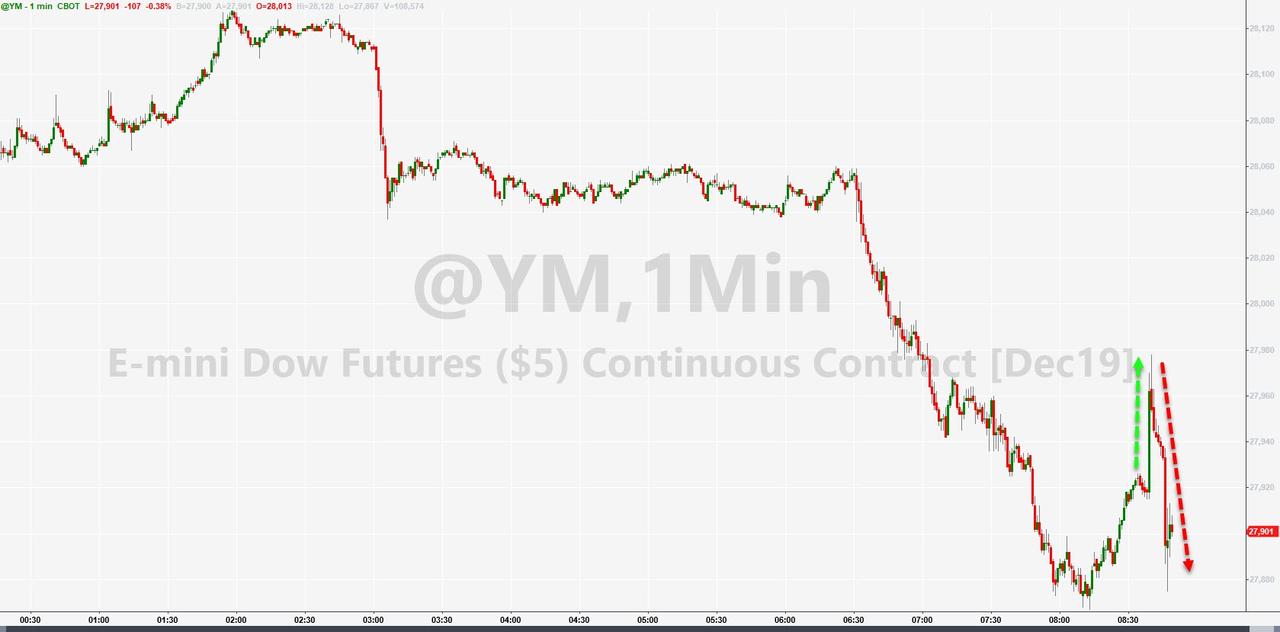Bloomberg reports that US and China are said to tie tariff relief to the failed "deal" in May...
Analysts say the first phase covers significantly less than what Trump has been promising publicly because it leaves on the table most of the thorny issues at the heart of the trade dispute. There's also widespread skepticism on both sides that the countries would ever reach a second-phase agreement that would tackle structural reforms.
This is the first indication that the two sides are basing their discussion on the May deal text, which the U.S. accused China of reneging on. Trump tweeted in October that the phase one deal would cover about 60% of the "total deal," although it's unknown whether that total deal is the same as the May one.
The kneejerk algo reaction was insta-buying but that rapidly faded (even though no one really has a clue what any of that means)...
And yuan spiked and tumbled...

Commenti
Posta un commento